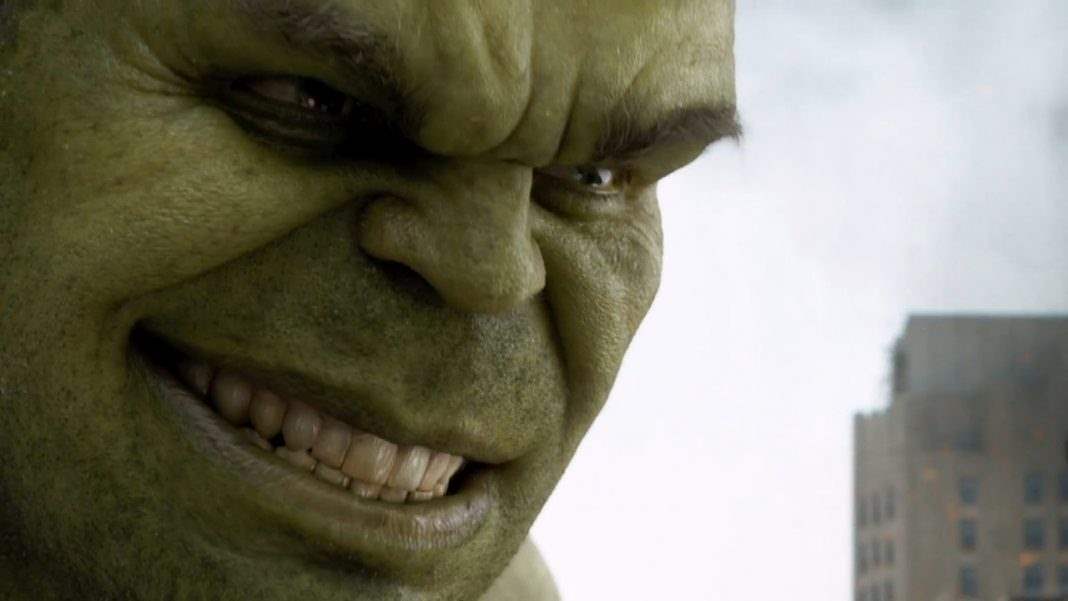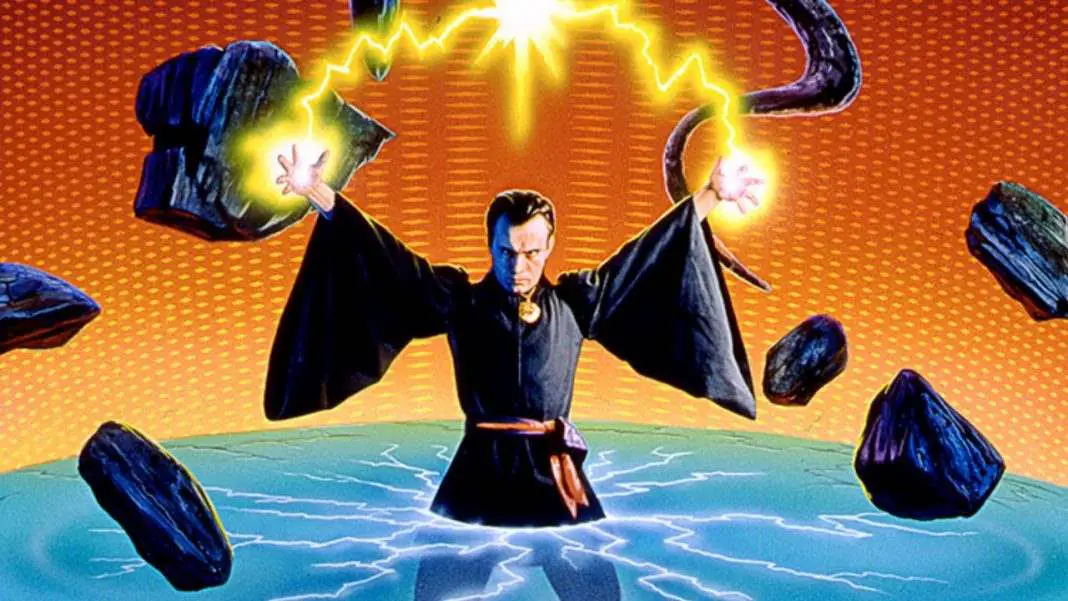The Incredible Hulk is one of the most endearing, iconic comic book characters of all time. Created by Stan Lee and Jack Kirby, he originated as part of the Marvel boom of the early ‘60s, making his debut around the same time as The Fantastic Four, Spider-Man, the X-Men, Doctor Strange and so many more. He’s inspired a live-action TV series, several cartoons, feature films and even an enormous roller coaster at Universal Orlando’s Islands of Adventure. With a starring role in the next Thor movie, the character is as popular as ever after fifty-five years of publication history. And he shows no signs of slowing down.
But more than maybe any other classic Marvel character, the Hulk’s origins are rooted in horror. Stan Lee had even admitted to this several times, being a classic horror fan himself. Like Spider-Man, Hulk was transformed into what he was through a radioactive encounter. But unlike Spider-Man or most other Marvel heroes, Bruce Banner was fundamentally transformed by this encounter into something completely beyond his control.
Most of the time, he’s a perfectly normal man. He’s a little timid, sure, a little sheepish, but Banner typically looks like the least threatening person imaginable. But it doesn’t take much to set him off and transform him into something monstrous. Make him angry, get him excited, anything to get that heart rate up and he transforms into the Hulk. He can’t fight it, he can’t stop it, it’s something he has to learn to live with.
We have over fifty years of comic book history centering on a man’s journey to cope with the thing he’s become. It’s such an effortlessly simple hook that—as pop culture has proven time and again—is also a gift that keeps on giving.

But there’s another connection they have that’s not so obvious, one that’s even made it into the Avengers films, shockingly enough. At the end of The Wolf Man, Larry is thought to have died. But it’s quickly revealed in Frankenstein Meets the Wolf Man that he didn’t die. That movie is about Larry’s struggle to find a way to end his cursed life, only to raise the possibility that maybe he can’t die. Like Larry, Banner seeks to end his life. But it’s possible that the Hulk is so powerful that killing himself might never be an option. This is a fascinating, morbid parallel between the two that tends to go overlooked.
An even more obvious inspiration than The Wolf Man is the story of Dr. Jekyll & Mr. Hyde. Hulk is also about a scientist who accidentally creates a destructive alter-ego for himself. What interestingly separates Hulk from both of these stories, though, is that both Talbot and Jekyll turn into things that are inherently destructive. The werewolf is pure animal instinct. Hyde is an impish little monster of a man. It’s interesting, too, that Jekyll shrinks a bit to turn into the hunched-over Hyde, whereas Banner transforms into a behemoth.
 Still, the Hulk is ultimately a gentle creature at his core, when he’s left alone. And that leads to the biggest horror influence, the one that truly inspired Lee and Kirby in the first place. When stripped to its core, reduced to its inspirations, The Incredible Hulk is basically the story of what would happen if Larry Talbot periodically transformed into the Frankenstein Monster instead. Hulk is literally Frankenstein Meets the Wolf Man inside a single body.
Still, the Hulk is ultimately a gentle creature at his core, when he’s left alone. And that leads to the biggest horror influence, the one that truly inspired Lee and Kirby in the first place. When stripped to its core, reduced to its inspirations, The Incredible Hulk is basically the story of what would happen if Larry Talbot periodically transformed into the Frankenstein Monster instead. Hulk is literally Frankenstein Meets the Wolf Man inside a single body.
Like Frankenstein’s Monster, Hulk doesn’t actually want to hurt anyone. He’s not destructive by nature. The damage he causes is reactionary. He lashes out, but he doesn’t seek to harm anything. He’s a misunderstood creature who wants to be left alone. That’s interesting, because even if Hulk stems from a part of Banner, even if this is an aspect of him unleashed—as is the case in Jekyll & Hyde—Hulk still has his own personality separate from Banner. He is a separate character unto himself.
Hulk was specifically inspired by the original Universal incarnation of Frankenstein. Like Karloff’s Monster, Hulk might not always know his own strength. There are times when he’s not aware of the destruction he’s causing until after he’s done the damage, but it doesn’t take away from the inherent goodness of his character.
 Of course, we also have to take into consideration the post-World War II implications of a man transformed into a monster by the radiation from a bomb that he created. Hulk draws obvious comparisons to Godzilla in that he’s huge and green and loves to smash. But both of them were transformed into monsters by the fallout from a radioactive bomb. It’s fascinating how the two stories differ culturally, though.
Of course, we also have to take into consideration the post-World War II implications of a man transformed into a monster by the radiation from a bomb that he created. Hulk draws obvious comparisons to Godzilla in that he’s huge and green and loves to smash. But both of them were transformed into monsters by the fallout from a radioactive bomb. It’s fascinating how the two stories differ culturally, though.
For Japan, their monster was an outside thing. Godzilla was a metaphor for the destruction of the bomb itself. It’s this hug, radioactive, fire-breathing thing destroying everything in its path. With Hulk, though, he’s not a creature that’s come from the sea. He’s a scientist transformed into a monster by a bomb that he created. The difference in approach is obvious between the country that created the bomb and the country that had the bomb dropped on them.
Hell, the number one recurring villain throughout Hulk’s history has never been The Leader, or the Abomination or any of these other mutated creations. It’s the U.S. military. It’s the army that would seek to take the monster Banner has become and find a way to weaponize it.
 Stripped down to the basic mechanics, Hulk is a story about PTSD. It’s a story about a man trying to cope with an accident that should have killed him. At any time, he could be set off and lash out in destructive ways, and it’s something he has absolutely no control over. The story is ultimately not about if he can find a way to be rid of the monster or if he can find a way to end his condition. The story of Hulk has always been about whether or not Banner can find a way to cope with his condition and with himself. Can he find a way to live with his monster?
Stripped down to the basic mechanics, Hulk is a story about PTSD. It’s a story about a man trying to cope with an accident that should have killed him. At any time, he could be set off and lash out in destructive ways, and it’s something he has absolutely no control over. The story is ultimately not about if he can find a way to be rid of the monster or if he can find a way to end his condition. The story of Hulk has always been about whether or not Banner can find a way to cope with his condition and with himself. Can he find a way to live with his monster?
That’s the question that’s driven this character for fifty-five years. I suspect it will drive him for all time. Hulk’s had too much of a cultural impact at this point to ever disappear. And even if he does slip off the radar, all you have to do is make him angry. Rumor has it you might not like what happens then.
But we will.





